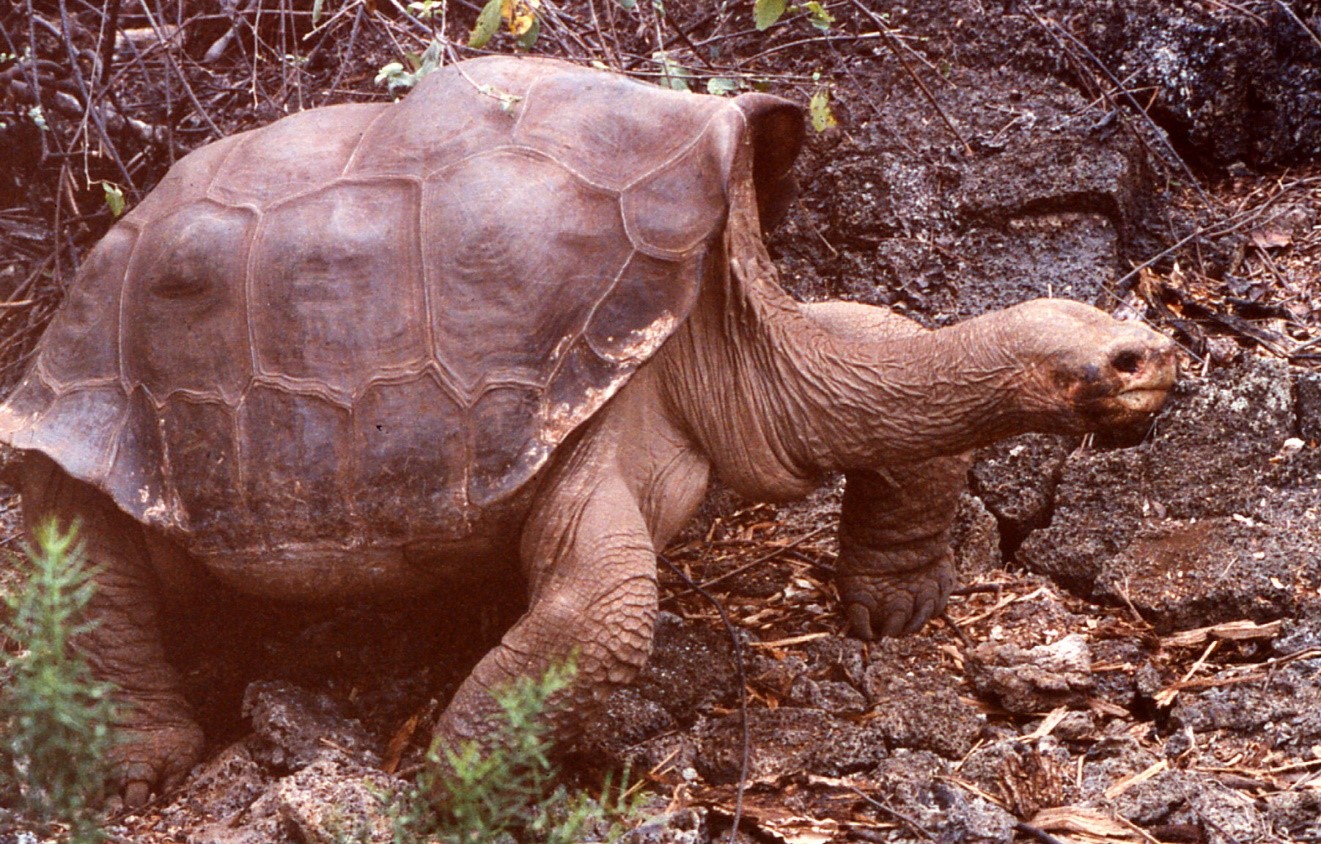
New research into the genome of the world famous giant tortoise, Lonesome George, provides extraordinary insights into the species’ large size, ability to live up to 200 years – and fight cancer.
An international team of researchers set out to sequence the genome of Lonesome George, the last member of the Galapagos giant tortoise species from Pinta Island (Chelonoidis abingdonii) that died in 2012.
As now published in the journal Nature Ecology & Evolution, they also sequenced the genome of a giant tortoise from the island of Aldabra in the Seychelles (Aldabrachelys gigantea) and compared both genomes with those of other species, including humans.
The research team from Yale University, the University of Oviedo in Spain, the Galapagos Conservancy, Galapagos National Park Service, Flinders University and other institutions directly analysed more than 3,000 genes thought to be potentially involved in cancer and ageing.
“Giant tortoises are amongst the longest living animals and therefore must have evolved mechanisms for reducing their risk of developing cancer,” says study co-author Professor Luciano Beheregaray, from the Molecular Ecology Laboratory at Flinders University.
“Because of that they provide an excellent model to study longevity and age-related diseases.”
The researchers identified several variants in the tortoise genomes that potentially affect six of the nine hallmarks of ageing.
None of these gene variants have been previously associated with the ageing process, so this breakthrough opens fresh research avenues which could lead to an improved understanding of the tortoises’ longevity.
They also found that giant tortoises have several expanded tumour suppressor genes, as well as alterations in two genes which are known to contribute to cancer.
While these findings point to evolutionary strategies linked to increased lifespan and age-related diseases, further studies are needed to determine if these features are indeed associated with suppressing cancer.
The research to unveil the genome of Lonesome George builds on two decades of genetic studies about the evolution of Galapagos giant tortoise populations.
“Lonesome George is still teaching us lessons,” says Dr Adalgisa (Gisella) Caccone, a senior researcher in Yale’s Department of Ecology and Evolutionary Biology and co-senior author of the paper.
University of Oviedo Biochemistry and Molecular Biology Professor Carlos López-Otín analysed the data and other species of tortoises to look for gene variants associated with longevity.
“We had previously described nine hallmarks of ageing, and after studying 500 genes on the basis of this classification we found interesting variants potentially affecting six of those hallmarks in giant tortoises, opening new lines for ageing research,” says co-senior author Professor López-Otín.
The new genomic data provides important resources to help improve the understanding of giant tortoise biology and to aid efforts to restore giant tortoise populations.
Lonesome George was a male Pinta tortoise discovered in 1971 and recognised as the last individual of his species.
After his capture in 1972, George lived for almost 40 years under protection at the Tortoise Center on Santa Cruz.
For decades, the tortoise didn’t reproduce with females from a similar species on the Galapagos Islands before his death from natural causes.
The study, Giant tortoise genomes provide insights into longevity and age-related disease, by Víctor Quesada, Sandra Freitas-Rodríguez, Joshua Miller, José G. Pérez-Silva, Zi-Feng Jiang, Washington Tapia, Olaya Santiago-Fernández, Diana Campos-Iglesias, Lukas F. K. Kuderna, Maud Quinzin, Miguel G. Álvarez, Dido Carrero, Luciano B. Beheregaray, James P. Gibbs, Ylenia Chiari, Scott Glaberman, Claudio Ciofi, Miguel Araujo-Voces, Pablo Mayoral, Javier R. Arango, Isaac Tamargo-Gómez, David Roiz-Valle, María Pascual-Torner, Benjamin R. Evans, Danielle L. Edwards, Ryan C. Garrick, Michael A. Russello, Nikos Poulakakis, Stephen J. Gaughran, Danny O. Rueda, Gabriel Bretones, Tomàs Marquès-Bonet, Kevin P. White, Adalgisa Caccone and Carlos López-Otín, is freely available in Nature Ecology & Evolution

